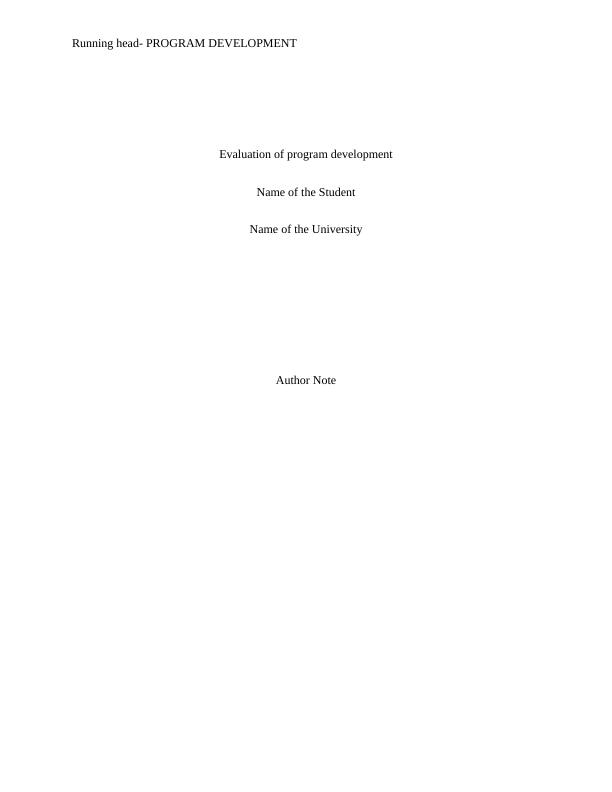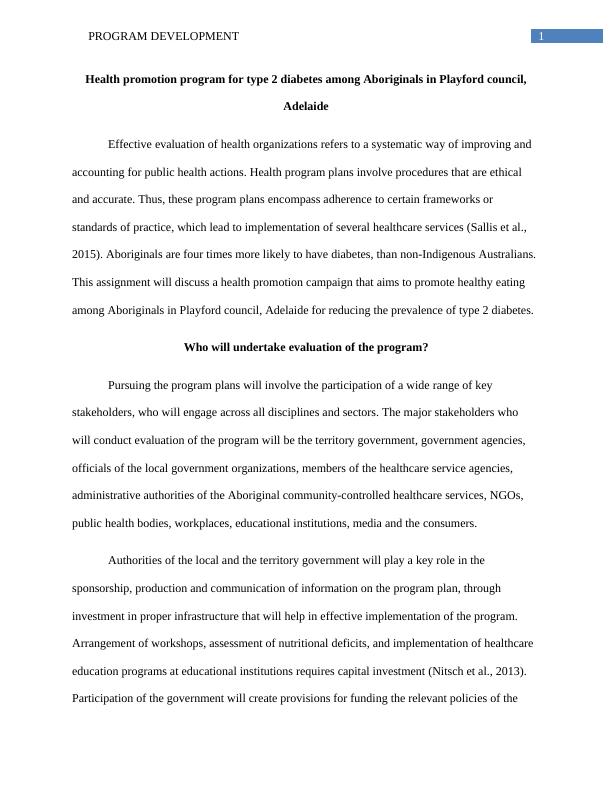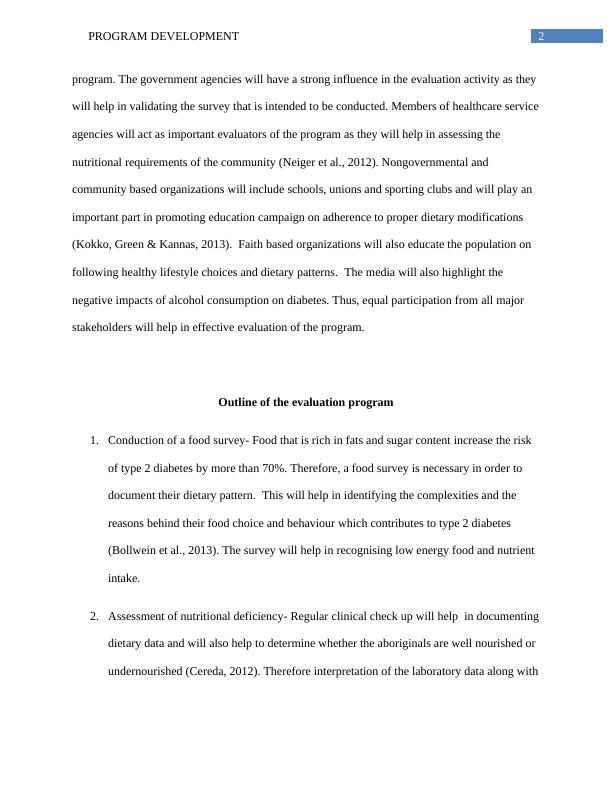Evaluation of Program Development for Health Promotion of Type 2 Diabetes Among Aboriginals in Playford Council, Adelaide
Write an explanation of who will undertake the evaluation of the program, outline the evaluation methods, address ethical challenges, and provide correct referencing.
8 Pages1995 Words59 Views
Added on 2023-06-15
About This Document
This article discusses the evaluation of a health promotion campaign aimed at reducing the prevalence of type 2 diabetes among Aboriginals in Playford council, Adelaide. It includes an outline of the evaluation program, stakeholders involved, and ethical challenges encountered.
Evaluation of Program Development for Health Promotion of Type 2 Diabetes Among Aboriginals in Playford Council, Adelaide
Write an explanation of who will undertake the evaluation of the program, outline the evaluation methods, address ethical challenges, and provide correct referencing.
Added on 2023-06-15
ShareRelated Documents
End of preview
Want to access all the pages? Upload your documents or become a member.
PUBH 2007: Program development, implementation and evaluation
|14
|2624
|122
Diabetes Health Promotion Programme
|11
|2130
|127
Developing a Healthy Eating Program for Aboriginal and Torres Strait Islander People in Playford
|13
|2141
|88
Diabetes Mellitus Assignment
|5
|702
|57
Health Promotion Program for Hypertension: Strategies, Goals, and Evaluation
|18
|1285
|80
Interdisciplinary Collaboration for Aboriginal and Torres Strait Islander Health Workers
|9
|2289
|265



